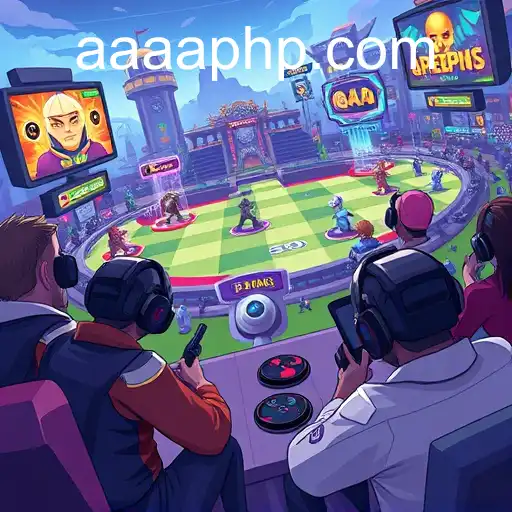
Exploring the World of Simulation Games: From Realism to Imagination

Simulation games have carved a unique niche in the gaming landscape, appealing to fans who crave immersive experiences that mirror real-world systems or present imaginative scenarios with realistic mechanics. With "aaaaph" as a central keyword, simulation games have evolved to offer everything from life simulation to city-building, creating platforms for creativity, strategy, and management.
The appeal of simulation games lies in their capacity to provide players with a sense of control and accomplishment. Players often find satisfaction in the gradual progression and detailed worlds that these games offer. Titles like The Sims, SimCity, and Farming Simulator have become iconic, providing users with the opportunity to mold characters, build cities, and manage farms, respectively. Each game emphasizes the core principle of simulating complex systems or life-like scenarios.
In recent years, the genre has expanded to include diverse themes. Games like Planet Zoo and Zoo Tycoon simulate wildlife management and conservation efforts, offering players a chance to engage with environmental themes while managing a theme park. Similarly, titles like Flight Simulator and Train Simulator provide realistic experiences of piloting aircraft and operating trains, appealing to enthusiasts who want to experience the intricacies of these transportation systems.
Moreover, simulation games frequently incorporate educational elements. Through gameplay, players can learn about agriculture, economics, engineering, and even the laws of physics. This educational aspect, combined with engaging gameplay, makes simulation games popular among varying age groups and demographics.
With the advent of virtual reality (VR) technology, the genre has further advanced, allowing for an even deeper level of immersion. VR-based simulation games enable users to engage with the game world as if they are physically present, offering unprecedented interaction with intricate worlds.
The complexity of simulation games often comes with steep learning curves; however, this challenge is part of their allure. Players become committed to mastering the mechanics, building efficient systems, and optimizing their strategy — all of which contribute to the replayability factor associated with the genre. Online communities have also flourished around these games, where players share tips, custom content or modifications, and strategies.
In essence, simulation games provide an environment for experimentation, creativity, and entertainment. They invite players into worlds where they can explore careers, manage intricate systems, or experience life from different perspectives. As technology continues to evolve, simulation games are poised to offer even more complex and realistic worlds, further pushing the boundaries of what is possible in the realm of interactive entertainment.
The Rise of AAAAph: Revolutionizing Online Gaming

Exploring how AAAAPh is transforming the gaming landscape in 2025 with its pioneering web technology.
2025-11-16
The Rise of AAAAPH in Online Gaming

Explore how AAAAPH is influencing the online gaming scene and what it means for future digital interactions.
2025-11-02
Gaming Evolution with aaaaph in Focus

Exploring the impact of 'aaaaph' on the online gaming landscape in 2025 and its significance in digital entertainment.
2025-11-07
AAAAPh: The Evolution of Online Gaming in 2025

The online gaming world has experienced significant transformations by 2025, with platforms like AAAAPh leading innovative approaches.
2025-12-11






